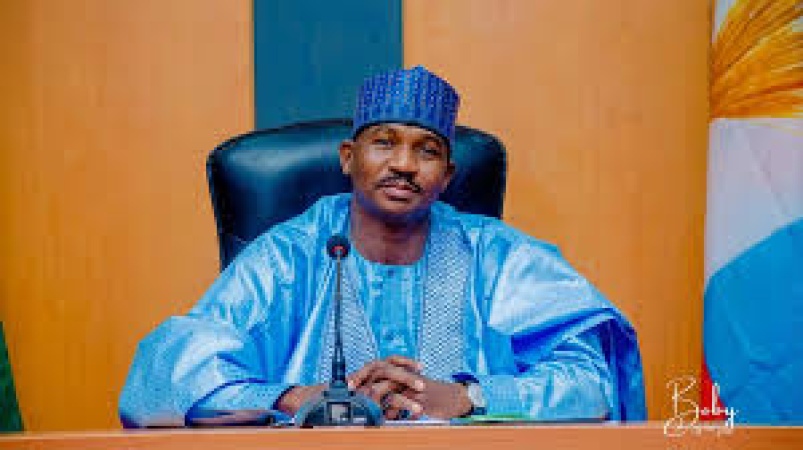
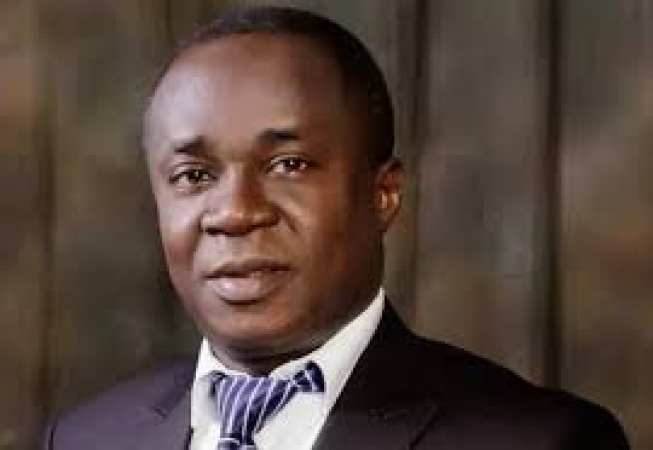
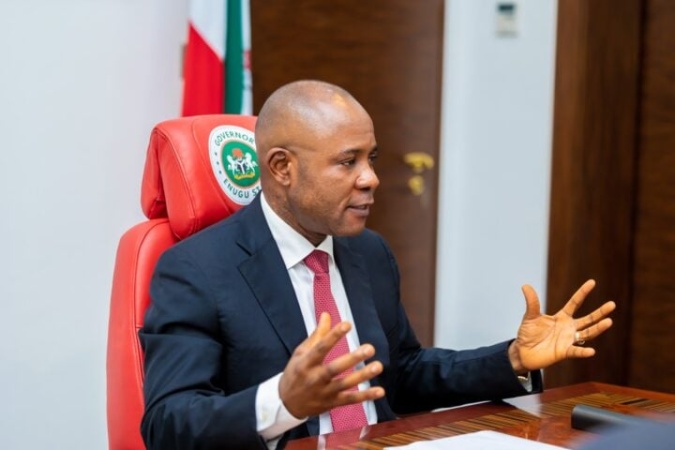

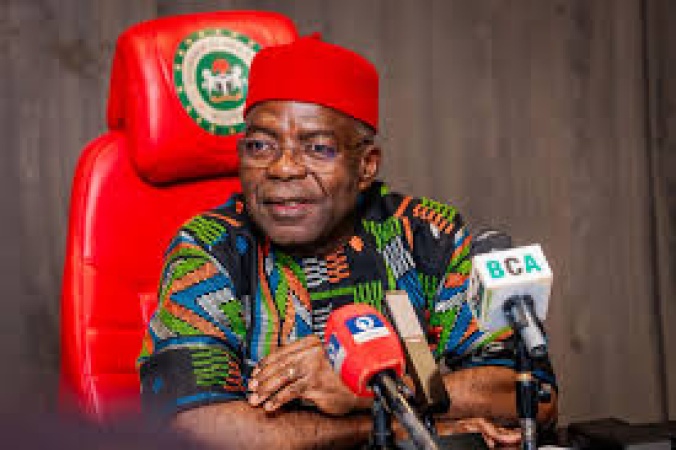

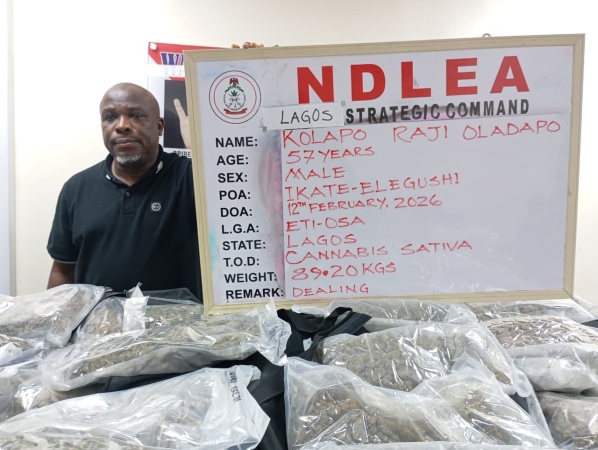

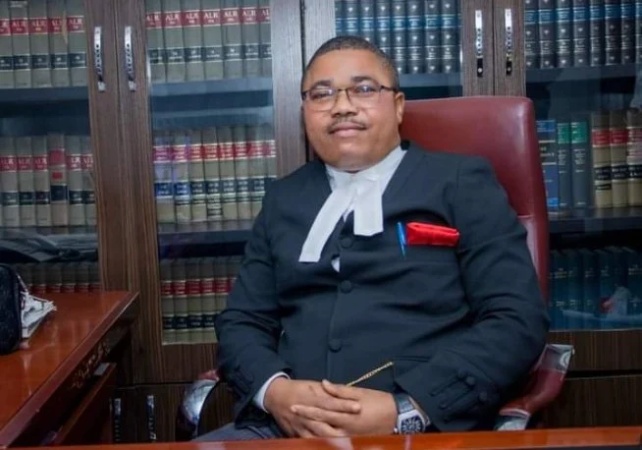



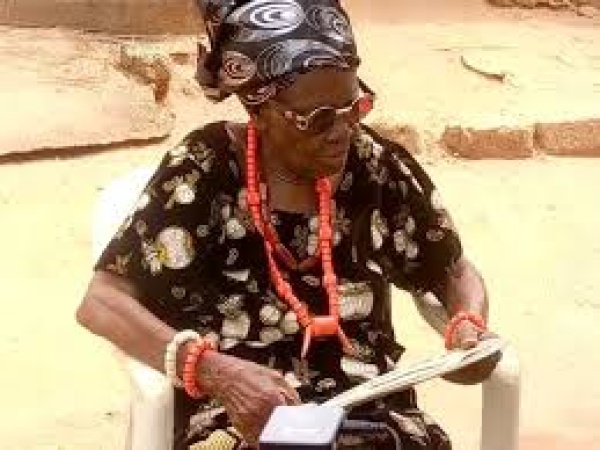
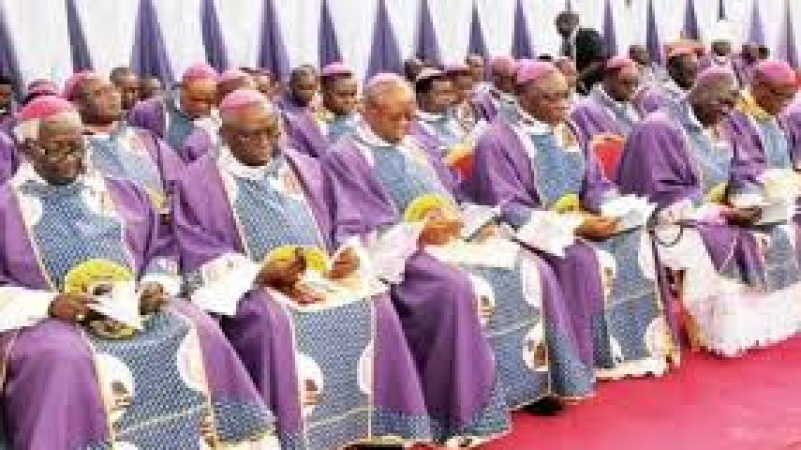




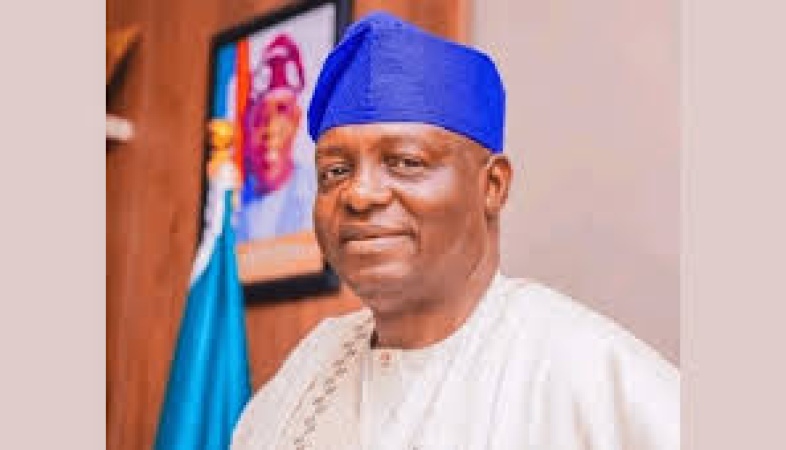







Loading banners


NEWS EXPRESS is Nigeria’s leading online newspaper. Published by Africa’s international award-winning journalist, Mr. Isaac Umunna, NEWS EXPRESS is Nigeria’s first truly professional online daily newspaper. It is published from Lagos, Nigeria’s economic and media hub, and has a provision for occasional special print editions. Thanks to our vast network of sources and dedicated team of professional journalists and contributors spread across Nigeria and overseas, NEWS EXPRESS has become synonymous with newsbreaks and exclusive stories from around the world.

Welcome to the second and final leg of our 2013 Executive Retreat. Since the Nike Lake Resort Retreat last July, we have had ample time to digest our findings and experience. This foreign retreat is therefore the rounding off segment.
We have deliberately chosen Johannesburg – an outside and foreign setting – not for the comfort or as reward, but to jog our minds and present to us, functional scenarios and accomplishments that are possible, when purposeful governance is in place and the best governance practices are put to work. Johannesburg is, after all, an African commercial city.
But first, we must place ourselves in the proper policy context and mind frame. We are not beginning a new Government in Anambra, but ending one, which has been in place for almost eight years. We are, however, greatly hopeful that we will transit to friendly successor administration come 17 March, 2014.
However, we need to end well and strong to retain the niche, added values and gains made so far by the Peter Obi administration. Accordingly, we must consciously think of our exit strategy, our end state mode of governance and more introspectively, we should consider the last six months of our administration as “a severe contest between intelligence, which presses forward, and an unworthy, timid ignorance obstructing our progress.”
Since we envisage and advocate continuity by finishing strong, and it may well be that some of us here will be privileged to be part of the succeeding administration, we need to be focusing on a seamless transition. That being the case, have we done the utmost to allow those coming after us to hit the ground running? Or are we in the operational mode of business as usual, or predisposed to “injury time mentality?” Ironically, there will be no overtime or injury time added after 17 March, 2014. Hence, we must focus on finishing strong.
Taking all these into account, this retreat is meant to serve as a moment of deeper reflection on the legacy we are set to leave behind, individually and collectively.
As the Peter Obi administration comes to an end, we must reflect on our collective role and ask a heady question: Have we delivered the dividends of democracy and the deliverables of ANIDS fully and are we indeed poised to finish strong?
Here is the reality. We are the ones charged with running the last lap in this eight-year administrative and governance relay. Are we set to win the race and entrench a sustainable development legacy? As heads of MDAs, are we the strongest or the weakest links in this administration’s chain?
And finally, do we fully understand the notion of a viable exit strategy, aimed at finishing strong and our role and place in moving Anambra from good to great in the remaining six months?
Ideally, have we contemplated an exit strategy that is all encompassing, which will guarantee continuity and ensure that our ANIDS rubric and policies are transformed to achievable sustainable development goals (SDGs).
What mode of succession planning have we put in place, even as we strive for continuity? As we ponder this particular question, we must bear in mind the cliche which states that “success without a defined successor is tantamount to failure.” Is our overall succession planning proactive and progressive?
Far more importantly, we continue to plan on the assumption that the successor regime will be a friendly one. And what if not? Can our policies, structures and projects withstand the full test of outside verification and even hostile inquiries? Is ANIDs so well entrenched in all sectors to represent a paradigm that even detractors would have no choice but to embrace?
Already, opponents and trenchant critics of this administration are at work, claiming that we have delivered projects that represent poor value for money. Yes, in an electioneering period, such politically induced remarks are expected. But they also serve as useful, if sadly, distractive indicators that our ANIDS agenda needs to be sustained or we risk its peril.
These may all seem academic. But, in fact, they are not, as they will, if properly addressed, constitute the framework, core values and critical elements of our finishing strong. This is more so for all political appointees, whose end date are tied with the exit of His Excellency.
As we are all aware, this administration, now in its last year, has been everything but a lame duck administration. Governor Peter Obi is committed to working hard on ongoing and new projects until the very end. He has promoted direct grant-in-aids especially in the educational and health sectors. Such a stance has been broadly applauded, but there are detractors who see things differently, and indeed, criticize such practices as an indication of our having “run out of policy ideas.” Your guess is as good as mine, what the disposition of such critics would be, once this administration leaves office.
Posturing for a proactive finish:
As we my all recall, the team building exercise during the Nike Retreat pointed to some elements of disconnect during our group dynamics. Have we made the necessary and required adjustments or do we assume that it matters little? The reality is that if the group dynamics were bad and unremarkable nine months to the finish date, they might be worse and defeatist six months to the finish date, unless systematically addressed.
Reflexively, we have entered the transition’s end stage, where every bureaucracy creates its own weaknesses, as individuals in critical positions strike out alone and the pursuit of divergent but self-sustaining or self-protecting agenda as personal survival becomes the norm. Such an attitude is contrary to established norms, which calls for personal humility and professional will anchored on espirit de corps. Ironically, we may not expect such dispositions for what they are.
Post-2015 – From MDGs to SDGs:
As we are aware, by 2015, if MDGs were to be assessed on a sector-by-sector or state-by-state basis, Anambra would be one of the very few Nigeria states closer to meeting its MDGs targets.
As things stand, for which we also get credit, United Nations Food and Agricultural Organisation (FAO) recently listed Nigeria among 38 countries that have already met the internationally-set hunger eradication targets set for 2015. But many areas of unmet needs remain. Hence, as the MDGs target date approaches, the international community is already looking at the post-2015 scenario and articulating the platform for Sustainable Development Goals (SDGs).
Unfortunately, as members of this administration, we will not be around to collectively implement those follow-on SDG goals, but we can lay the solid foundation now, depending on whether we are focussed and committed to finishing strong.
In implementing MDGs, we have tackled the bulwark tripod of poverty reduction, education and healthcare delivery successfully. But as we have learned, “universal access to energy, health and education is central to the broad development and uplift of societies.”
Indeed, as Ambassador Macharia Kamua of Kenya, the co-chair of UN Open Working Group on SDGs or the post-MDGs scenario, observed recently, “MDGs helped focus, direct, and mobilize government and multilateral action in unprecedented ways... And crucially they had impact, saving lives, improving health, promoting education and even reducing poverty...... [indeed] tens of millions of people were pulled out of the pathway of ill-health, ignorance and poverty as a result of the MDGs.” (New African, issue 531, Aug/Sept 2013, p.42).
For our part, each MDA can readily identify areas of its work which are in tandem with MDGs and the overall goals of ANIDS. What is required of us at this juncture is to look at the unfinished business and make the necessary adjustments that allows for continuity. Whereas in the past we focussed on short term goals, the so-called “low hanging fruits”, we must of necessity focus now on accentuating the medium and long term niches, bearing in mind very clearly that it would not be us that would bring such policies to fruition. However, the foundation we lay, would be most critical to their success and sustainability.
Loyalty to the legacy brand and squaring the three circles:
On arriving in Johannesburg earlier today, I saw an advert titled “From Starting a Legacy to Leaving a Legacy”. In the end, ANIDS will be Gov. Peter Obi’s legacy, but we will all have a role and responsibility in its actualization, which will either be vicariously positive or negative. It is our task to show unfettered commitment to the ANIDS brand and legacy, but also to square the three critical circles that ensures the transition from good to great so that the future we seek for Anambra State will emerge consequently.
Hence, in our march from good to great, we must remain conscious of three identifiable niches and intersecting circles that need to be squared; sustainable passion for our policies, underpinning our areas of comparative advantage and identifying our corporate needs. The latter ties in with the deliverables we offer our constituents. The core values of ANIDS, as you must remember, is simultaneous development of all our 177 communities, which means not one community being left behind, or having the feeling or being disenfranchised or forgotten. These are facts communities will recall and raise when we go out to seek their support and votes.
What matters most in the time left:
As individuals we all have concerns and maintain a hierarchy of personal needs. As public officers and political appointees, we must do likewise in order to remain focussed. Even if the pressures and challenges are legion; even if the politicking becomes extensively distractive, we need to remember while electioneering, that we must run on this administration’s discernible record. We have a rich and worthwhile record, which others will only try to rubbish. We must not let them be the ones to tell the story or denigrate the ANIDS policies and projects as mere paper tiger.
Our Conditional Cash Transfer programme, our senior citizens welfare schemes, our vigilante support schemes, our interface with foreign investors, our road network and other infrastructures, our eduction and health delivery schemes and the heralded partnership with missions are not mere aberrations. So our ANIDS flagship policies are solid and must be presented as such.
In promoting and reiterating the accomplishments of the Peter Obi administration, we must exhibit the willingness to defend our core values against all odds and criticisms. Do not assume the Governor will do it. Do not assume the Deputy Govenor will do it. We must and have a duty to rally to the cause. This is not just for the sake of politicking, but because others who seek to form the next administration have no record to run on. Their goal will be to diminish, and to malign. Those who served here briefly, albeit illegally, would even claim that everything positive this administration has done was based on their blueprint.
We need not be apologetic or defensive. We need not be rhetorical. But we must be robust collectively and individually in enunciating what Peter Obi has accomplished. We must tell our own story. We have the facts and we know the projects; our role is to market our accomplishments in an assertive manner. We must also continue to emphasize the role of our international partners and the donor community.
In underlining our attraction of foreign investors and need for continuity, we must not fail to underline as His Excellency Gov. Peter Obi has always done, that lack of certainty over continuity, will only scare away foreign investors. In assessing our completed and ongoing projects, we must continue to highlight the nexus between our limited state budgetary resources and the extra-budgetary donor funding used for many of our developmental projects.
Concluding Thoughts:
In Anambra, the future is emerging. The challenges call for our resolve. Nonetheless, we must shy away from indifference, lethargy or any personal disposition that will result in weak management methods, ineffective control of funding and material resources or indeed, in perceptions of truncated policy measures, poor governance or resignation.
In closing, therefore, let me underline that we must continue to lay emphasis on values over policy. Yet, as we are advised by experts “careful attention to policy is the stuff of good governance.” In the weeks running up to 16 November, 2013 gubernatorial election, we need to translate our collective political alignment into electoral success, in order to ensure continuity. We must remain mindful that continuity will translate to a scenario where even those of us who will be outside government may still be privileged to voice influence and help direct policies, which started on our watch.
These, briefly, are our challenges in the remaining six months of this administration. We are poised to finish strong. We can indeed move our state from good to great, but to do so, we must rise to the occasion and finish strong. I know we can.
•Being remarks by Hon. Oseloka H. Obaze, SSG Anambra, at the ANSG Executive Retreat in Johannesburg, South Africa, on September 6, 2013. Obaze (shown in photo) spoke on the topic, “Are We Poised to Finish Strong?”